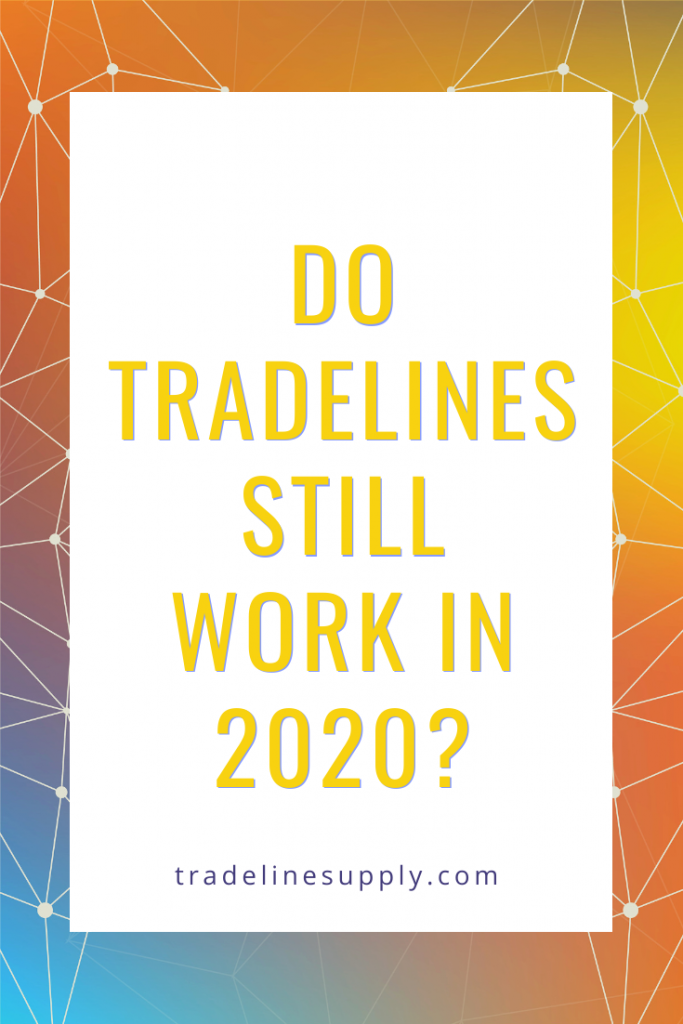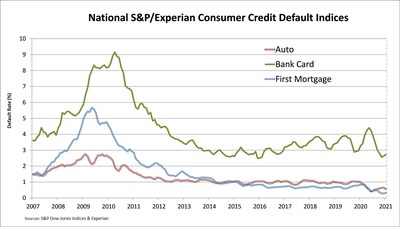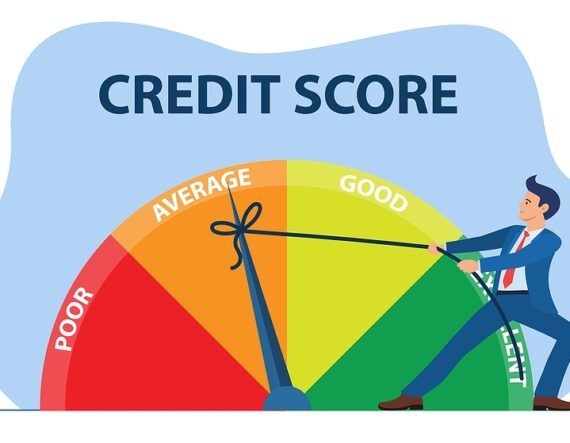Do Tradelines Still Work in 2020?
One question we often hear is “Do tradelines still work in 2020?”
Fortunately, we can say with certainty that tradelines do still work in 2020, and we are confident they will continue to be effective for years to come.
To explain our answer, we will delve into the history of authorized user tradelines and the policies that regulate the tradeline industry.
Why Do Tradelines Work?
Although the term “tradeline” could refer to any account in your credit file, usually in our industry people use the word as shorthand for authorized user tradelines, or accounts on which you are an authorized user.
Credit card companies allow cardholders to add authorized users (AUs) to their accounts, which are people who are authorized to use the account but are not liable for any charges incurred. For example, a business owner could add an employee as an AU of their credit card, or a parent could add their child.
When someone is added as an AU, often the full history of the account is shown in the credit reports of both the primary user and the AU, regardless of when the AU was added to the account. Therefore, the AU may have years of credit history associated with the account reflected in their file as soon as they are added.
This is why obtaining an AU tradeline through a family member or friend is a common way for people to start establishing a credit history. In fact, studies estimate that 20-30% of Americans have at least one AU account.
Why are authorized users able to share the benefits of the primary user’s credit rating, even though they are not liable for the debt? This policy is a result of the Equal Credit Opportunity Act of 1974 (ECOA).
Before ECOA was passed, creditors would often report accounts shared by married couples as being only in the husband’s name. This prevented women from building up a credit history and credit score rating in their own names, which in turn prevented them from being able to obtain credit independent of their husbands.
In response to this unequal treatment, ECOA was passed to prohibit discrimination in lending. The federal law made it illegal for creditors to discriminate on the basis of sex, marital status, race, color, religion, national origin, age, or receipt of public assistance.
This means that creditors may not consider this information when deciding whether or not to grant credit to an applicant or determining the terms of the credit.
ECOA was passed in large part to prevent creditors from discriminating against women and to provide equal credit opportunities to women.
Regulation B is a section of ECOA that specifically requires that creditors report spousal AU accounts to the credit bureaus and consider them when lenders evaluate a consumer’s credit history.
Generally, creditors do not distinguish between AUs that are spouses and those that are not when reporting to the credit bureaus, which effectively requires the credit bureaus to treat all AU accounts in the same way.
As a result of this policy, the practice of “piggybacking credit” emerged as a common and acceptable way for individuals with good credit to help their spouses, children, and loved ones build credit or improve their credit.
The practice of piggybacking is the foundation of the tradeline industry. In a piggybacking arrangement, a consumer pays a fee to “rent” an authorized user position on someone else’s tradeline. The age and payment history of that tradeline then show up on the consumer’s credit report as an authorized user account.
Are Tradelines Legal?
It is understandable that there is some confusion about this since not many people are aware of the idea of tradelines for sale, although the practice has been in use for decades.
While Tradeline Supply Company, LLC cannot provide legal advice, we can refer to several official sources, including the Federal Trade Commission, who have indicated that it is legal to buy and sell tradelines.
While tradelines are not illegal, historically, they have not been accessible to everyone. The high cost of tradelines meant that only the wealthy could afford to purchase tradelines for credit piggybacking. Today, however, innovations in the industry have lowered the cost of tradelines, making them affordable to a much wider audience.
Tradeline Supply Company, LLC is proud to be leading the tradeline industry in automating the process of buying and selling tradelines, offering some of the lowest tradeline prices in the industry, educating consumers on the credit system, and making tradelines accessible to everyone.
Our goal is to provide equal opportunities to those who do not have access to authorized user tradelines through friends and family by providing an online platform that allows for a greater network of connections.
But Didn’t Credit Card Piggybacking Get Banned?
Fair Isaac Corporation (FICO), the creator of the widely used FICO credit score, did try to change its scoring model to eliminate the benefits of authorized user tradelines, although they were ultimately unsuccessful. The firm announced that they were planning to devise a way to allow “real” AUs to keep the benefits of their AU tradelines while at the same time discounting the value of AU tradelines for consumers who FICO deemed to be “gaming the system.”
FICO admitted to Congress that they could not legally discriminate between AUs based on marital status due to ECOA.
While this statement understandably caused a lot of concern among consumers of tradelines, as it turns out, FICO was never able to implement this change in their scoring system.
At a congressional hearing in 2008, Fair Isaac’s president admitted that they could not legally distinguish between spousal AUs and other users, because discriminating based on marital status would unlawfully violate ECOA.
After consulting with Congress and multiple federal agencies, FICO was blocked from discriminating against AU account holders. Consequently, all AU accounts are still being considered in FICO 8, the most widely used credit scoring model.
In addition, studies have shown that accounting for AU data helps make credit scoring models more accurate, so it is actually in FICO’s best interest to continue including all AU accounts in their credit scoring models.
In working with thousands of consumers over the years, our results prove that in 2020, AU tradelines still remain an effective way to add information to an individual’s credit report, regardless of the relationship between the primary user and the authorized user.
Here’s another piece of evidence that proves that authorized user tradelines still work in 2020: many banks actually promote the practice of becoming an authorized user for the specific purpose of boosting one’s credit score. To see this for yourself, all you need to do is go to any major bank’s website and search for “authorized user.” You are almost guaranteed to see several articles pop up that talk about becoming an authorized user in order to build a credit history.
How Do We Know Tradelines Will Continue to Work in the Future?
Most widely used credit scoring models still include authorized user “piggybacking” accounts.
Given that FICO has already targeted the tradeline industry before, it makes sense to wonder whether tradelines will still work in the years to come if FICO eventually does succeed in coming up with a way to discriminate against certain AUs.
Thankfully, we can rest assured in knowing that the tradeline business will be around for a long time. The reason that we can be sure of this is that the credit industry is extremely slow to adapt, so even if FICO were to roll out a new credit score model that can tell which AUs purchased their tradelines, it would take years, if not decades, for this new credit score to be adopted across the entire financial industry. Let us explain why this is the case.
Credit scoring is a complicated process, and all lenders have their own guidelines when it comes to underwriting. FICO has many different scoring models, and the specific versions used to evaluate credit applicants vary widely between different industries and even between individual lenders within the same industry.
Currently, the three major credit bureaus (Equifax, Experian, and TransUnion) use the version called FICO 8, which debuted in 2008. Consequently, this is also the version that most lenders use for measuring consumer risk for various types of credit, such as personal loans, student loans, and retail credit cards.
However, according to FICO, the mortgage industry still relies on the much older FICO score models 2, 4, and 5. Auto lenders sometimes use FICO 8, while many still use FICO 2, 4, and 5. Credit card companies may use versions 2, 3, 4, 5, and 8.
As if this isn’t complicated enough, many lenders also use proprietary credit-scoring guidelines specific to their businesses. As FICO’s website says, “It is up to each lender to determine which credit score they will use and what other financial information they will consider in their credit review process.”
As you can see from the wide range of versions used, lenders are extremely slow to adapt to changes in FICO’s credit scoring model. In addition, their underwriting processes have been built around previous versions of FICO. All of the credit score data they have accumulated over time is only accurate for the particular version that was used to calculate it.
Transitioning to a completely new credit score model would require businesses to expend significant resources on updating their technological systems, collecting and analyzing new consumer data, training employees, and possibly incurring financial losses as a consequence of not being able to rely on the consumer data they collected while using older credit score models.
For these reasons, most lenders tend to be very reluctant to introduce the latest FICO credit scoring model.
Lenders use credit scoring models that are specific to their industries, so they tend to resist changing to newer models. Photo by InvestmentZen.
So, even if FICO were to successfully eliminate authorized user data in future credit scoring models, it is likely that it would take years or even decades for lenders to adapt to this change.
In addition, as the 2008 congressional hearing showed, FICO will face pushback from the federal government if they try to eliminate authorized user benefits again. It is highly unlikely that a large company like FICO would want to risk being shut down by the federal government for violating the law.
Consumers wouldn’t stand for it, either. In the Washington Post, J.W. Elphinstone wrote, “Other consumers besides credit renters stand to lose with the change, namely those for whom authorized user accounts were designed… there’s no way to distinguish these from the latest crop of strangers trying to augment their scores. Lenders who want to find out more information about others on credit card accounts are hindered by the Fair Credit Reporting Act and privacy laws.”
Final Thoughts
When FICO took the issue of piggybacking all the way up to Congress in 2008, they made headlines in their fight against the practice.
This was also during the same time that the subprime mortgage meltdown began which preceded the Great Recession. The entire mortgage industry had to be overhauled and many people assumed that the tradeline industry went down along with it.
What did not make headlines is that FICO’s push to do away with the authorized user tradeline industry actually failed due to the government upholding ECOA and the FTC affirming that the practice of buying and selling tradelines is allowed.
The banks themselves even promote credit card piggybacking among friends, family, and co-workers.
Now, in 2019, this option is more affordable and accessible than ever through companies such as Tradeline Supply Company, LLC, who help provide equal credit opportunity for all by making it possible for nearly anyone to buy tradelines.
Let us know if you liked this article, and don’t forget to pin it on Pinterest!
Read more: tradelinesupply.com
















